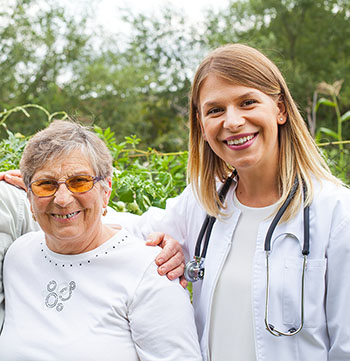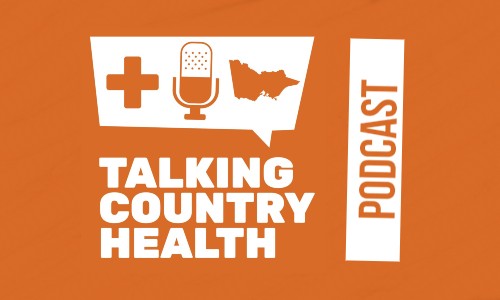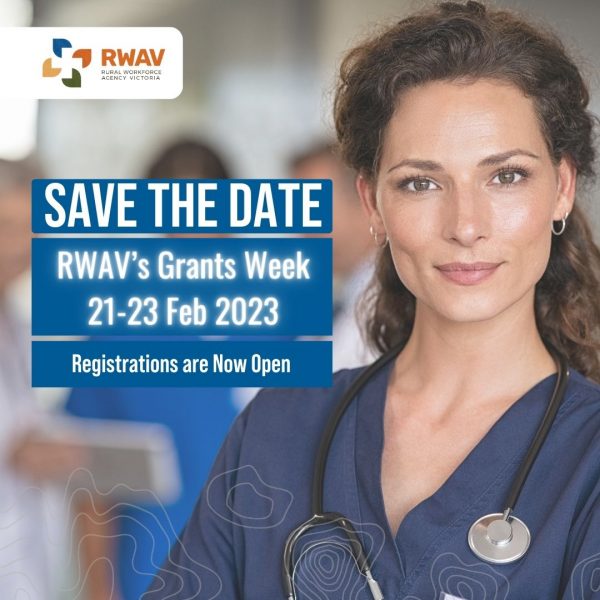Tuesday 14 August 2018
In attendance at this meeting were representatives from the Australian College of Rural and Remote Medicine (ACRRM), Royal Australian College of General Practitioners (RACGP), EVGP Training (EV), Murray City Country Coast GP Training (MCCC), Department of Health and Human Services Medical Workforce and Rural branches (DHHS) and Rural Workforce Agency of Victoria (RWAV).
The purpose of the meeting was to share information on current rural generalist activities and initiatives and determine the extent that existing programs can support the future workforce needs of rural Victoria.
Creating pathways for rural generalists in Victoria
There was agreement that a renewed focus was needed to attract and retain doctors to rural communities. It was acknowledged each community and/or region within Victoria had specific and at times differing needs, and that these needs change over time.
Creating training and career pathways for rural generalists is gaining momentum. This is being led at a national level by the National Rural Health Commissioner and through initiatives such as the Collingrove Agreement, the future quarantining and funding of 100 rural generalist places in the Australian General Practice Training (AGPT) program, a new AGPT program policy for rural generalists, and greater involvement by ACRRM and RACGP in the selection and management of AGPT.
In Victoria, the Department of Health and Human Services is funding the Rural Workforce Agency Victoria (RWAV) to administer 15 rural generalist posts for registrars on the AGPT program. RWAV also administer 20 advanced rural skills training posts for general practitioners and registrars on the AGPT program. Development of rural generalist pathways in Victoria involves the collaboration and cooperation of all key stakeholders – RWAV, health services, general practices and rural training organisations with on-going support of both colleges.
Scope of practice
It was agreed that a rural generalist is defined as per the Collingrove Agreement i.e. “a doctor is a medical practitioner who is trained to meet the specific current and future healthcare needs of Australian rural and remote communities, in a sustainable and cost effective way by providing both comprehensive general practice and emergency care and required components of other medical specialist care in hospital and community settings as part of a rural healthcare team”.
A rural generalist needs to have specialist general practice qualifications with either RACGP or ACRRM.
It was agreed that the core advanced skills of obstetrics, anaesthetics or emergency medicine make up a rural generalist skill set. To support local needs, advanced skills such as palliative care, Aboriginal and Torres Strait Islander health and mental health are also recognised by ACRRM and RACGP as an advanced skill for rural generalist training.
Improving outcomes for trainees
There was agreement that all relevant medical students and interns in Victoria should be given early opportunities to learn about a career as a rural generalist in rural practice and to register their interest if they have a desire to pursue a rural vocation. Rural retention is more likely for trainees who have completed multiple years of training in a Victorian rural setting. Examples where the majority of training from PGY 1-5 occurs in a rural setting, with the option of temporary rotation/s to a metropolitan setting for specific skill acquisition, are recognised as conducive to positive outcomes. Equally important is quarantining procedural posts for doctors training as rural generalists and in doing so, ensuring sufficient posts exist to meet training needs. Approaches exist to support the nurturing of rural intention in students and interns, and this was acknowledged as an important contributor to a sustainable rural workforce for Victoria. Providing further support in this area would be beneficial.
Creating pathways that lead to employment opportunities
There was agreement that better pathway integration is needed to assist medical students, interns and registrars understand the possibilities that a career as a rural generalist in Victoria can lead to. More work is required to build pathways to employment while retaining existing, already established training posts relevant to rural generalists. Where possible, trainees need to be offered 2-3 year contracts by health services and be given a variety of options and rural settings for acquiring advanced skills. Health services and hospitals should be supported to understand the value of rural generalists for their community and the benefits of future employment opportunities, if flexible pathways for training can be created. Where possible, advanced skills posts should be aligned with community need and future job prospects.
Paramount to improved rural generalist pathway outcomes are:
- Early identification of suitable trainee;
- Localised connection, support, guidance and mentoring of the trainee;
- Continuity of training within a particular region for the majority of training time;
- Well supported training environment involving senior medical supervision; and,
- Alignment of program models and funding arrangements at undergraduate, prevocational and vocational levels.
Overcoming challenges
A lack of financial recognition for doctors acquiring and using non-procedural advanced skills in Victoria was acknowledged as a barrier that needs to be addressed if trainees are to be encouraged to acquire these skills. At present, remuneration is at an equivalent specialist rate for emergency medicine, paediatrics, obstetrics and anaesthetics only. To foster attractive and sustainable training pathways, further efforts which boost accessibility of quality teaching and supervision in rural Victoria are required. Innovative models and remote supervision should be explored. The lack of an industrial framework to underpin GP VMO roles in hospitals was also acknowledged.
With the awareness of rural generalism increasing, and the demand for rural generalist training increasing as a result, it is recognised that the number of Victorian rural generalist posts currently funded may need to increase to accommodate future numbers of rural generalist registrars training under the Commonwealth AGPT program. Without future increase, AGPT program rural generalist registrars will be unable to complete their rural generalist training in Victoria. Losing rural generalist registrars from the state during their training is not conducive to delivering better health workforce outcomes to Victoria. While in training, rural generalist registrars also deliver and support workforce need within their relevant community.
New opportunities
To overcome some of the system challenges in Victoria, it was acknowledged that greater promotion of existing rural generalist pathways for trainees should occur. This could lead to conversations with other rural health services about new models for supporting trainees to acquire the required skills to be a rural generalist. Enhanced alignment between commonwealth and state funding and priorities should be emphasised and new funding secured to create additional training posts that reflect community need. Local level health planning data and workforce data should be more effectively utilised to determine training posts and future employment opportunities.
Actions
There was agreement that the meeting had raised awareness of current rural generalist initiatives and explored the potential for new collaborations and strategies to support sustainable rural workforce outcomes in Victoria. It was suggested a follow up meeting in three months be held to progress a number of strategies. In the meantime, participants committed to the following actions:
- Determine where rural generalists can work in Victoria.
- Explore further the existing mechanisms for medical students and interns that enable them to receive information about integrated rural generalist training pathways in Victoria.
- Progress the development of the fifteen current rural generalist posts into a more formalised pathway structure.


















